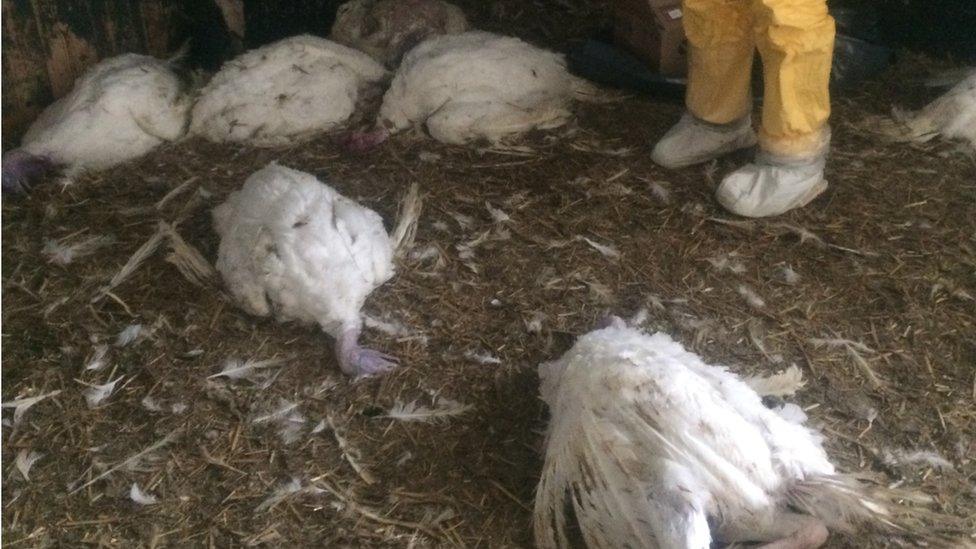First case of wild bird flu in England confirmed in Leicestershire and Somerset
- Published
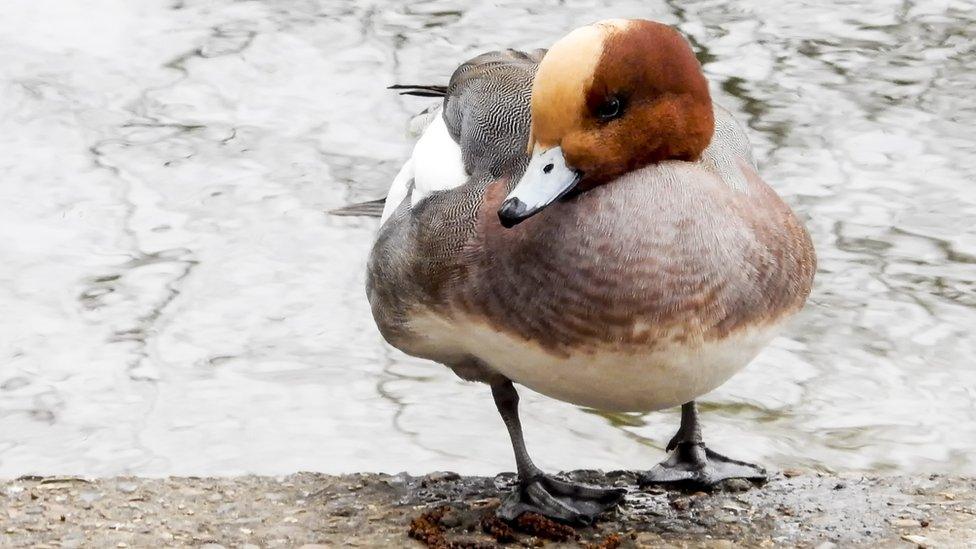
Two dead wigeons - one in Somerset and the other in Leicestershire - were found to have had avian flu
Two wild birds have tested positive for bird flu - the first cases in the wild in England, the UK's Chief Veterinary Officer has confirmed.
The H5N8 strain of avian flu was found in Leicestershire and Somerset in two dead wigeons - a type of duck.
It follows the discovery of the virus in the wild in Scotland and Wales and on a Lincolnshire farm last week.
Chief vet Nigel Gibbens said the public risk was "very low" but experts would "strengthen surveillance" of the virus.
"Today's confirmed findings mean that avian flu has now been found in wild birds in widely separated parts of England, Wales and Scotland," he added.
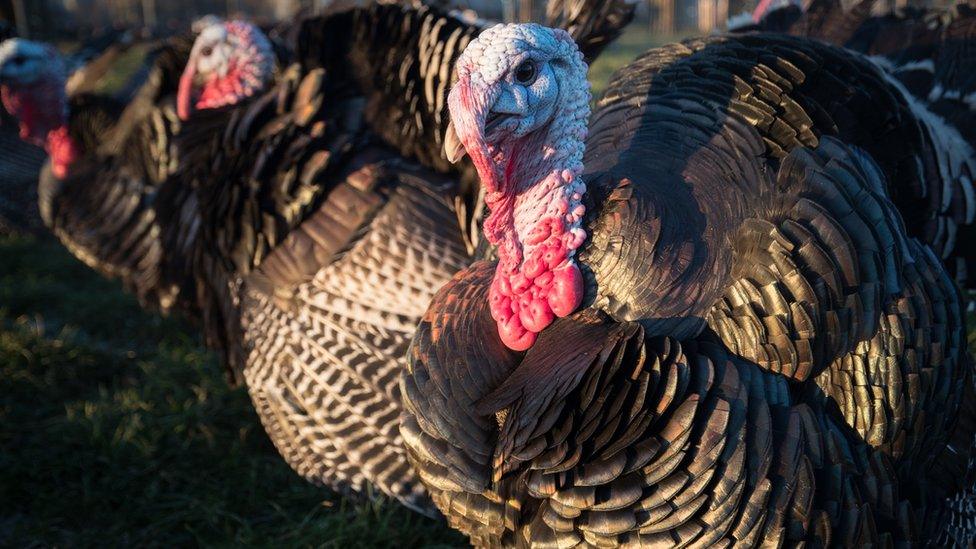
H5N8 was discovered on a Louth farm where most of the 5,000 turkeys died with the remaining culled
"This is far from unexpected and reflects our risk assessments and the measures we have taken including introducing a housing order for poultry and a ban on gatherings.
"We'll continue to work with ornithological groups to further strengthen surveillance and our understanding of the extent of infection in wild birds."
The H5N8 strain has been circulating in Asia since 2010 and has caused two separate outbreaks in Europe following the autumn migration.
It is a highly infectious strain of flu in birds but there have been no recorded cases in humans anywhere in the world, the BBC's health and science reporter James Gallagher said.
The government imposed a protection zone earlier this month, ordering all kept birds to be housed in doors.
Hundreds of thousands of birds have been culled in Europe with the virus reported in poultry and wild birds in 14 countries.
- Published23 December 2016
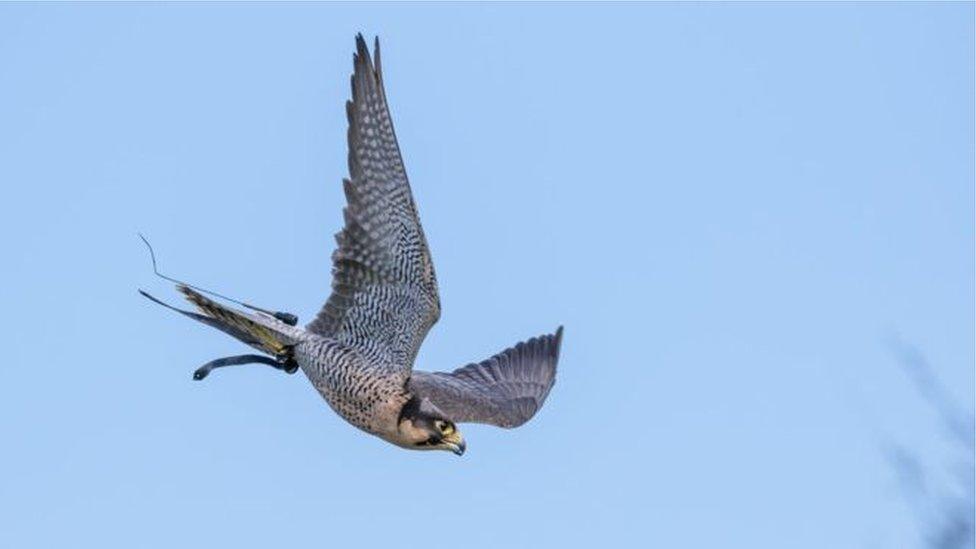
- Published22 December 2016
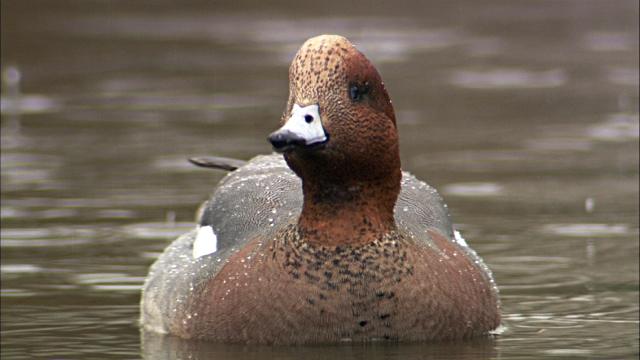
- Published20 December 2016
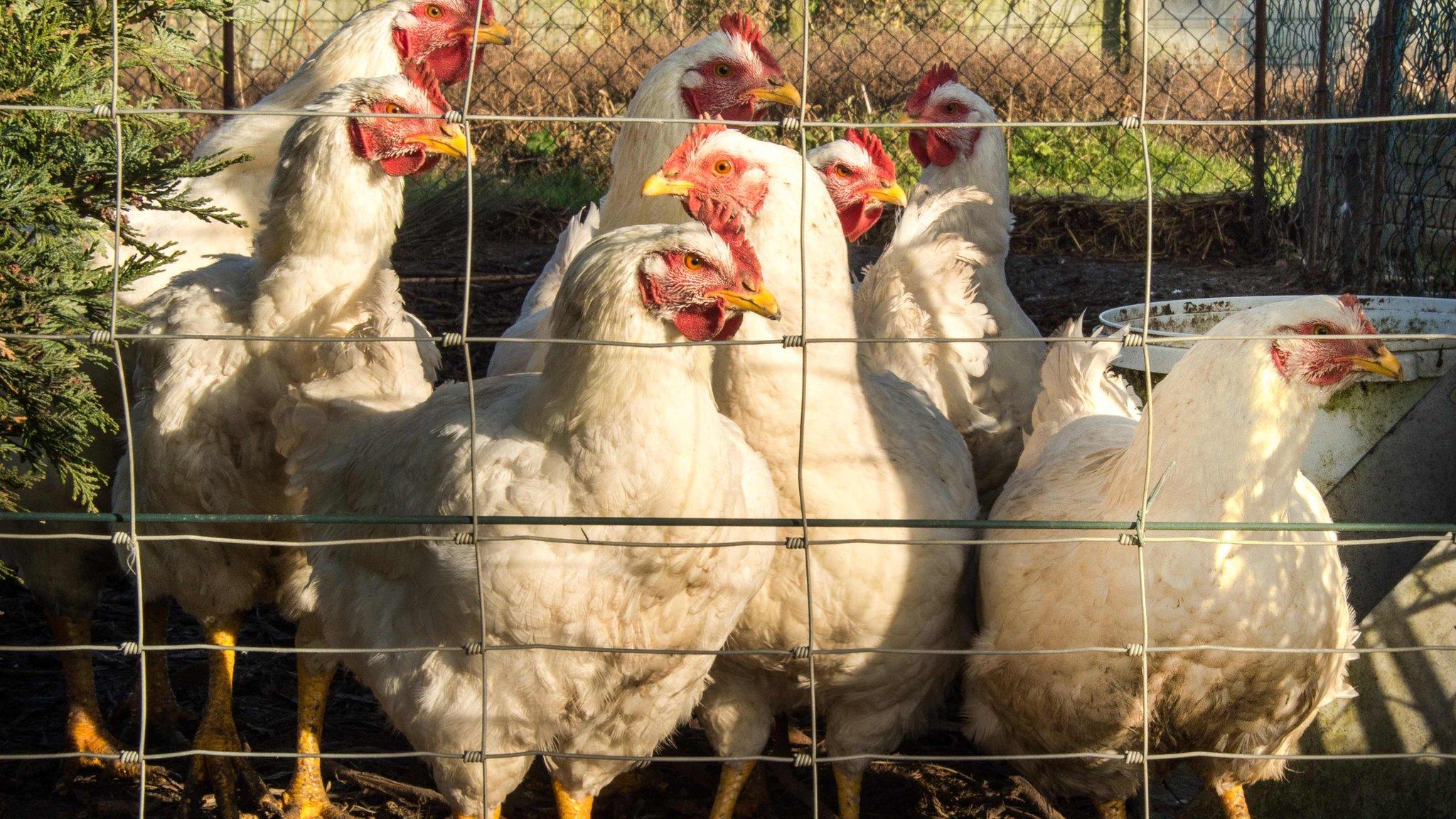
- Published16 December 2016

- Published13 October 2016
